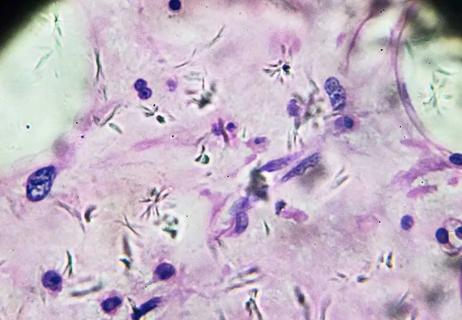What you need to know to navigate your diagnosis

When you learn you have cancer, the one thing you want to know is, “What is my prognosis?” — meaning, what is the likely outcome? Often, there’s no simple answer. And if you feel like you’re drowning in medical terminology, that’s completely normal.
Advertisement
Cleveland Clinic is a non-profit academic medical center. Advertising on our site helps support our mission. We do not endorse non-Cleveland Clinic products or services. Policy
We talked with oncologist Dale Shepard, MD, PhD, to help sort through the vocabulary that goes along with a cancer diagnosis. His answers may help give you a better understanding of your condition and its outlook.
A: Being cured means you undergo treatment and the disease never comes back. The therapy has absolutely taken care of the disease.
We usually put a five-year time frame on that. If you’ve had no recurrence in five years, we consider that cured.
With remission, you’ve had therapy, and the tumor is gone or decreased in size. We have gotten an optimal response, but we don’t know yet whether it will return. Here, we are keeping you under observation and we acknowledge that at some point we may have to treat your disease again.
A: Chemotherapy can have several goals. One is to cure someone of cancer.
Another goal of chemotherapy can be to control cancer by shrinking a tumor or preventing the disease from growing or spreading elsewhere in the body. With chemotherapy, the tumor might shrink, but will still remain at the next imaging. That’s an important concept for some people to understand about chemotherapy.
In clinical trials for solid tumors, the tumor is said to have responded if it shrinks by more than 30 percent. Patients are said to have stable disease if the tumor decreases in size, but by less than 30 percent or if it doesn’t grow more than 20 percent. In broad terms, for the first type of chemotherapy for a solid tumor, about one-quarter of people have a significant decrease in the size of the tumor, about half of patients will have stable disease and about one-quarter will have a cancer that grows despite the treatment.
Advertisement
Setting expectations is important. Sometimes it’s OK to have a tumor that stays the same size. While the tumor hasn’t shrunk, it also hasn’t grown.
Chemotherapy also can be used when cancer is at an advanced stage, meaning it’s not under control and has spread from where it started to other parts of the body. The goal here may be to help the person feel better, for instance, by shrinking a tumor that’s causing pain or pressure.
Many times, we are trying to view cancer as a chronic disease like diabetes or hypertension. If we can control the tumor and symptoms and help people live longer, that is a measure of success.
A: Yes. One is response rate, which is the percentage of people whose cancer either shrinks or disappears after treatment. This number can indicate how effective the treatment is and is derived from clinical trials with a large group of people testing the treatment. Keep in mind, however, that your individual response may be different.
Another is overall survival rate. This number represents the percentage of people who survive the cancer over a certain period of time. Again, this is an average and may or may not apply to you.
A: Yes. Come to your doctor’s office with a list of questions. You should ask for clarification if you don’t understand something.
Often the first couple of appointments are overwhelming, so it’s helpful to bring someone with you. Your companion can help by taking notes or helping to remember everything that was said.
You should also determine in advance what you want to know and when. In most cases, you don’t have to know everything immediately, and it may take some time to digest your prognosis. Make sure you’re prepared as much as possible for whatever answer you might get.
Advertisement
Learn more about our editorial process.
Advertisement

Prioritize protein and fresh produce, but be extra careful to avoid bacteria that could cause foodborne illnesses

Rates of early-onset breast, colorectal and GI cancers are increasing, but preventive care and a healthy lifestyle can help reduce your risk

The side effects of cancer and treatment can impact desire, sexual function and intimacy, but there are ways you can keep the flame going

Decisions you make regarding smoking, alcohol use, meal choices and exercise can make a big difference

Taming fear and reclaiming your future after treatment

Carcinomas are the most common and affect skin and organs

7 healthy eating tips to help reduce your risk of some of the most common types of cancer

Research on the controversial issue is mixed, but there are safety precautions you can take

Start having sex about 72 hours before ovulation, then at least every other day during your fertile window

Attachment theory suggests that your earliest relationships shape connections throughout your life

It isn’t a recognized mental health disorder, but research shows that problematic social media use can negatively affect your mental health, self-esteem and sleep